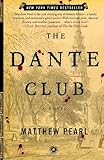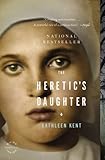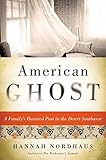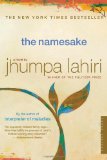Jhumpa Lahiri’s second novel The Lowland, released in 2013 and a finalist for the National Book Award, begins in the neighborhood of Tollygunge in Calcutta (now Kolkata) with two brothers, Udayan and Subhash, born 15 months apart, sneaking into the Tolly Golf Club. Subhash is beaten by a police officer when the boys are caught, and the incident seems to change their personalities as they grow up. Subhash becomes cautious, careful. Udayan’s anger at the police officer blooms into an interest in the Indian communist Naxalite movement by the time he is in college. The boys drift apart as Subhash becomes increasingly concerned by Udayan’s politics. Subhash decides to go to graduate school in Rhode Island. His brother writes him letters about his activities, including his marriage to Gauri. When Udayan is killed, Subhash travels back to Calcutta and meets Gauri, living in his parents’ home. They ignore her, and he begins to feel sympathy for her, especially after learning she is carrying Udayan’s child. He offers to marry her, and she agrees, traveling with him to Rhode Island in an attempt to escape her past. However, the terrible secret she keeps, which is not revealed until near the novel’s end, and the specter of Udayan cast a pall over the marriage.
While I can’t exactly say that I struggled through the first half of this novel, I will say it didn’t truly grab me until the second half. I’m glad I didn’t give up on it. Early in my reading, I might put it down for days at a time before picking it up again. I managed to pick up and finish two other books in the course of reading The Lowland. However, after Gauri became interested in education and started attending philosophy classes, I found myself fully engaged. Gauri emerged as the most fascinating character for me. I was actually surprised in the end when her secret was revealed, and the two most moving parts of the book for me were her final confrontation with both her daughter, Bela, and her trip back to Kolkata to see the Lowland where Udayan was killed. Gauri emerged for me as a fully realized character, a real person with a great deal of depth. I know that whenever Gauri was on the page, I sat up straight and pulled the book a little closer. Michiko Kakutani feels that Lahiri did not give Gauri enough psychological complexity for the reader to understand why she left the way she did, but I disagree. I feel that her actions are difficult to understand until she reveals her truth. In some way, Gauri feels like a bomb, I think, and removing herself from those who love her is her way of saving them and protecting them in the way she could not save two men who died—who she feels she plays some part in killing. What Gauri has done, both in Calcutta and after she arrives in America, is unforgivable. However, I think it was also very human. If one character doesn’t emerge as fully realized for me, it’s the adult Bela.To me, it’s her adult choices and actions that don’t make sense.
By the time Subhash and Gauri settled in Rhode Island and Bela was born, I found this book captivating and difficult to put down. Lahiri is at her best when she is describing the ways immigrant families navigate living in the United States, which is what made The Namesake such a success. This book is described as more ambitious than her earlier work, and it is perhaps that ambition that makes the novel a bit unwieldy. Michael Cunningham says in “First Love,” an essay he writes about discovering the novel Mrs. Dalloway, that “Woolf understood that every character, no matter how minor in a novel she wrote was visiting the novel, from a novel of his or her own.” Where this novel struggles, if it does, is that it tries to be the novel for all the characters—Udayan, Subhash, Gauri, Bela, and even Udayan and Subhash’s mother. Would it have been more even if Lahiri focused on one character? Maybe. But the result is a rich tapestry of a beautiful and moving book.
Rating:




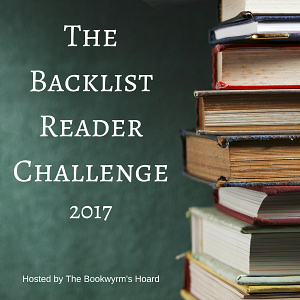 I can’t remember how long ago I put this on my to-read list, but it was a long time ago, and I have had the book for a while as well, so I am counting it as my second book for the Backlist Reader Challenge. Though this novel begins in the 1950’s, I am not counting it for the Historical Fiction Challenge because it does go to the present and is not completely set in the past.
I can’t remember how long ago I put this on my to-read list, but it was a long time ago, and I have had the book for a while as well, so I am counting it as my second book for the Backlist Reader Challenge. Though this novel begins in the 1950’s, I am not counting it for the Historical Fiction Challenge because it does go to the present and is not completely set in the past.





